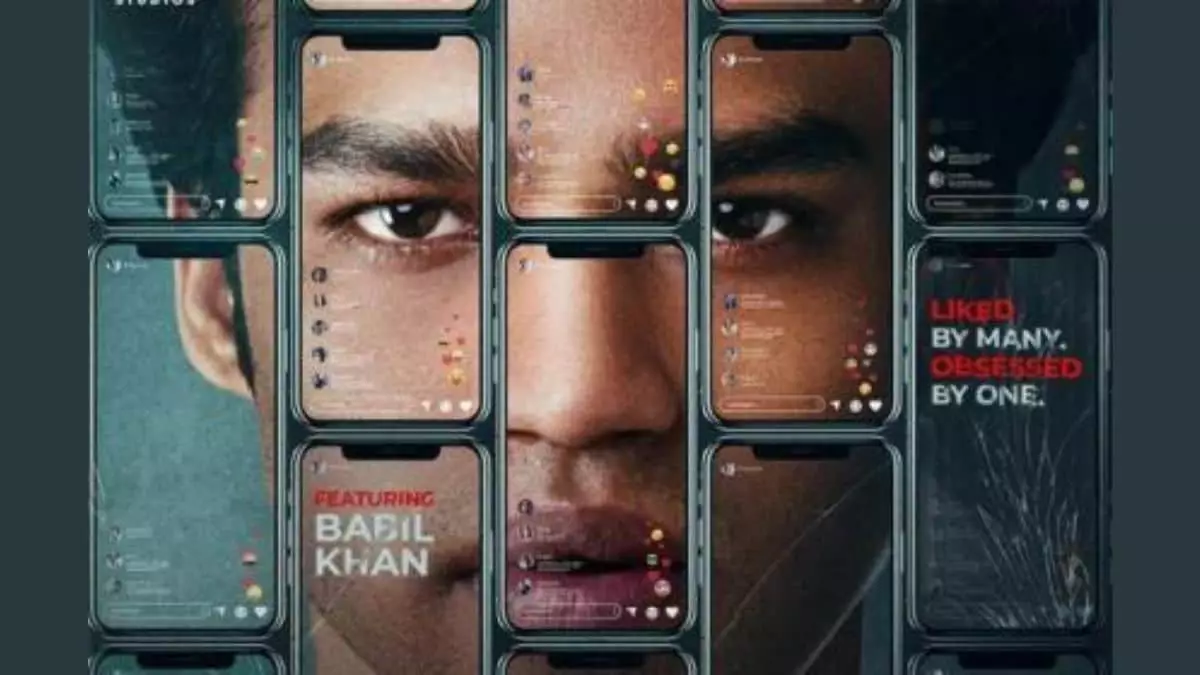In a world where screens dominate our lives, Babil Khan’s upcoming film, *Logout*, dares to shine a glaring spotlight on an issue we often choose to ignore: the suffocating grip of digital dependency. As the son of the late Irfan Khan, Babil steps into the limelight with not just a performance, but a crucial narrative that captures the psychological battleground we face in the age of hyper-connectivity. This Hindi-language thriller, directed by Amit Golani, will be available for streaming on Zee5 from April 18, 2025, and it may just be the wake-up call we desperately need.
The film introduces us to Pratyush, portrayed by Babil Khan, who is an archetype of today’s youth—hungry for validation and success in a world dictated by social media metrics. His obsession with amassing followers becomes a metaphor for a deeper malaise prevalent in society: the unsettling notion that our worth is tied to our online personas. As Pratyush spirals further into his digital world, the film illuminates tragic realities such as cyberbullying, gaming addiction, and a unique brand of emotional detachment that social media cultivates.
A Mirror to Society’s Addiction
*Logout* is more than just a cautionary tale; it serves as a mirror reflecting the real-world consequences of our digital lives. The narrative confronts the audience with some uncomfortable truths: the toll of endless scrolling, the pervasive fear of missing out (FOMO), and the incessant need for validation—elements that can easily lead to burnout and despair. As someone who stands on the center-left fence of liberalism, I find it compelling that a film of this nature is being produced, tapping into a zeitgeist that discussions surrounding mental health and technology often overlook.
Rasika Dugal plays an essential role as a therapist, perhaps echoing the compassionate voice society needs but often shies away from. Her character brings a level of depth that resonates with viewers who may find themselves desperately seeking help but fear the judgment that comes along with it. Here, *Logout* doesn’t merely entertain; it beckons viewers to confront their own digital habits and recognize the symptoms of addiction often disguised as modern convenience.
A Collaborative Vision of Hope and Reflection
The film was penned by Biswapati Sarkar and is a product of a partnership between Digital 18 Media Pvt Ltd and Posham Pa Pictures, showcasing a blend of creative minds dedicated to pushing boundaries. Their effort is further validated by the film’s recognition at several prestigious festivals, such as the Indian Film Festival of Melbourne and Stuttgart. It speaks volumes that this story is more than entertainment; it’s a call to introspection that resonates across generational divides.
In an era constantly bombarded with messages about achievement—primarily dictated by online interactions—this filming leads us to question the ‘true cost of connection.’ The phrase “disconnect to connect” seems almost ironic coming from the age of clicks and likes, yet *Logout* posits this very framework as a solution. The film’s storyline nudges us not only to evaluate our engagement with technology but also invites a deeper exploration of human connectivity in its most authentic form.
Pushing the Boundaries of Digital Narratives
While the trailer hints at thrilling highs and lows, it excels in highlighting the abyss we may plunge into when we lose grip on what constitutes authentic human experience. The depiction of Pratyush’s rise and potential fall acts as a cautionary account, reinforcing the urgency for a dialogue on our relationship with technology. In the context of a progressively digital society, *Logout* is not merely a cinematic experience; it stands as a rallying cry for a generation increasingly entrapped in their self-created digital labyrinths, losing sight of the beauty of the real world.
As *Logout* gears up for its release, it ignites a flicker of hope that cinema can still challenge norms and raise challenging questions about our existence. It is told through an engaging narrative, showcasing not just the male protagonist’s journey but inviting everyone along for a necessary ride through the chaotic corridors of digital living.


Leave a Reply